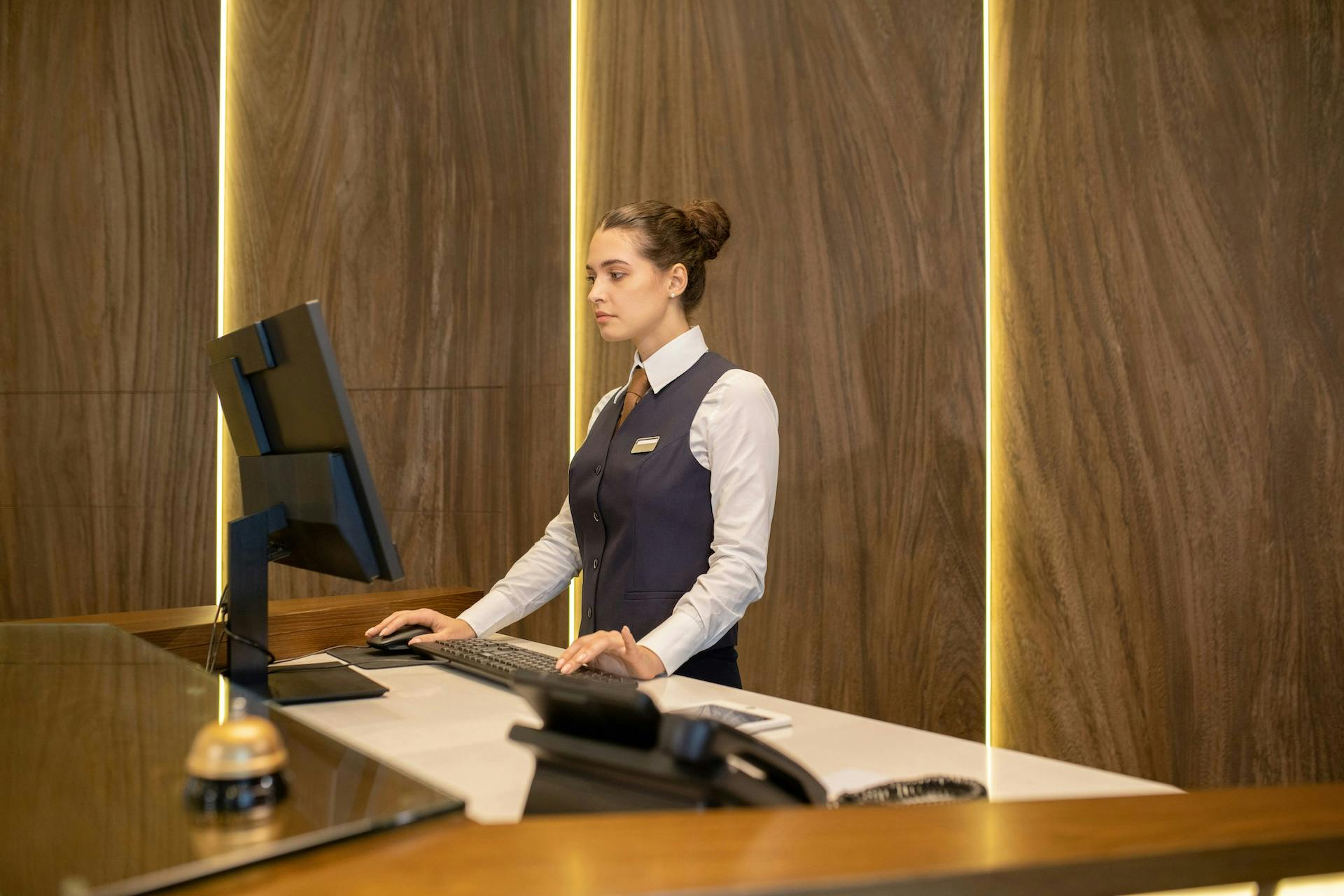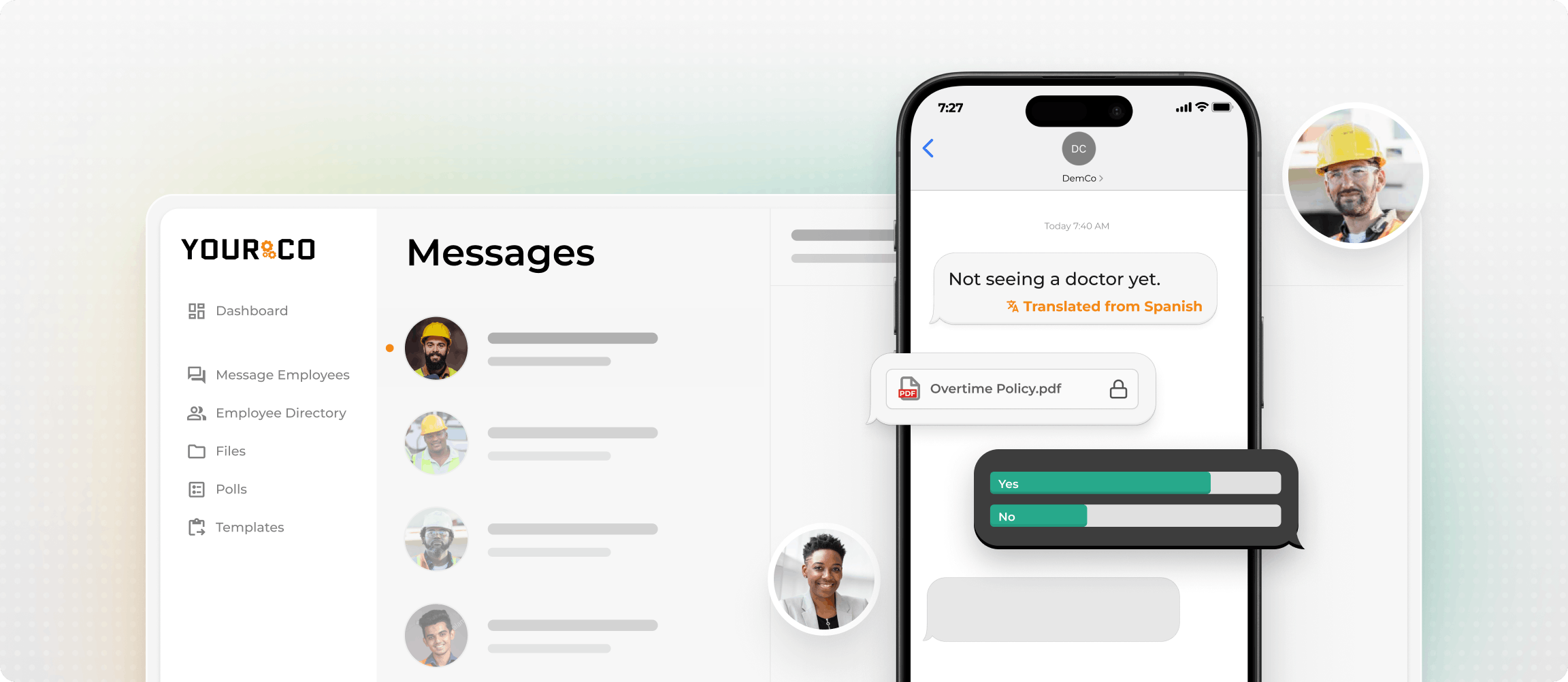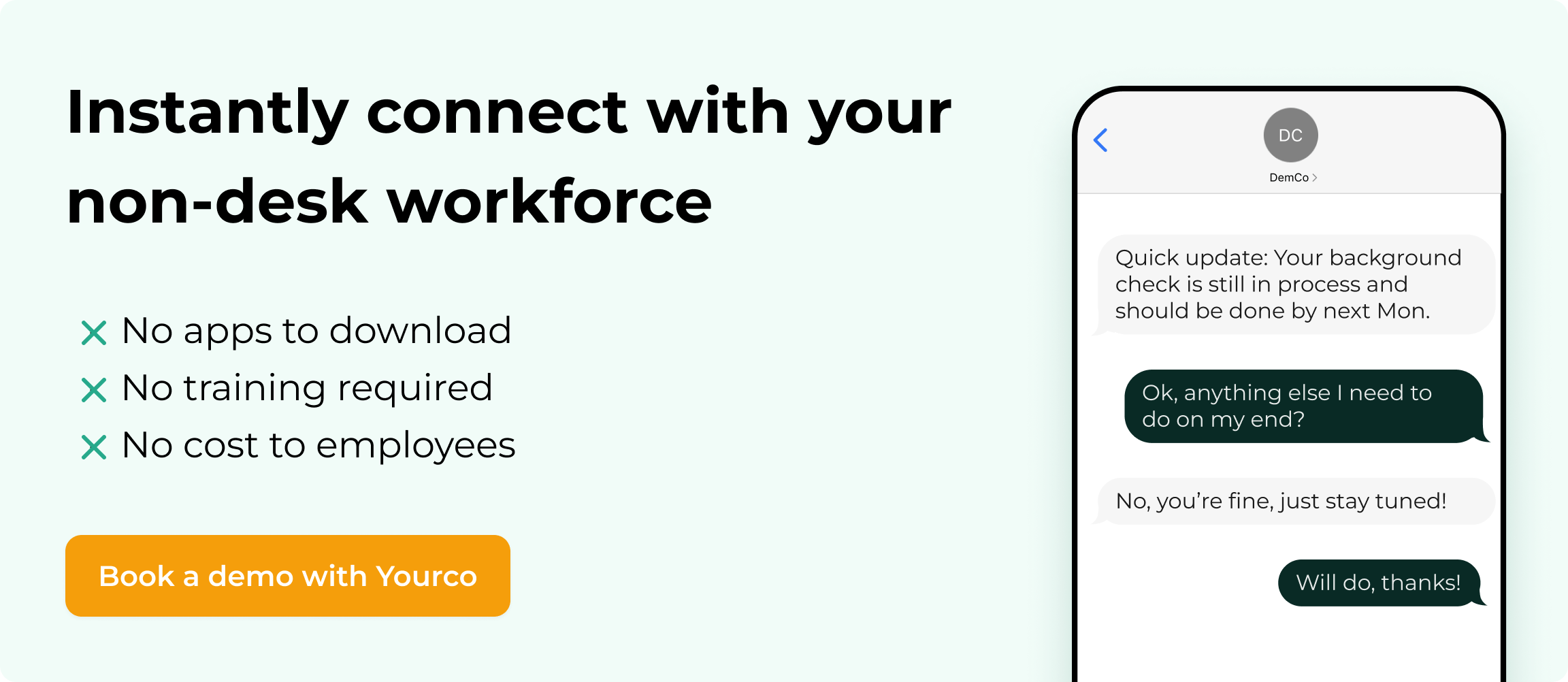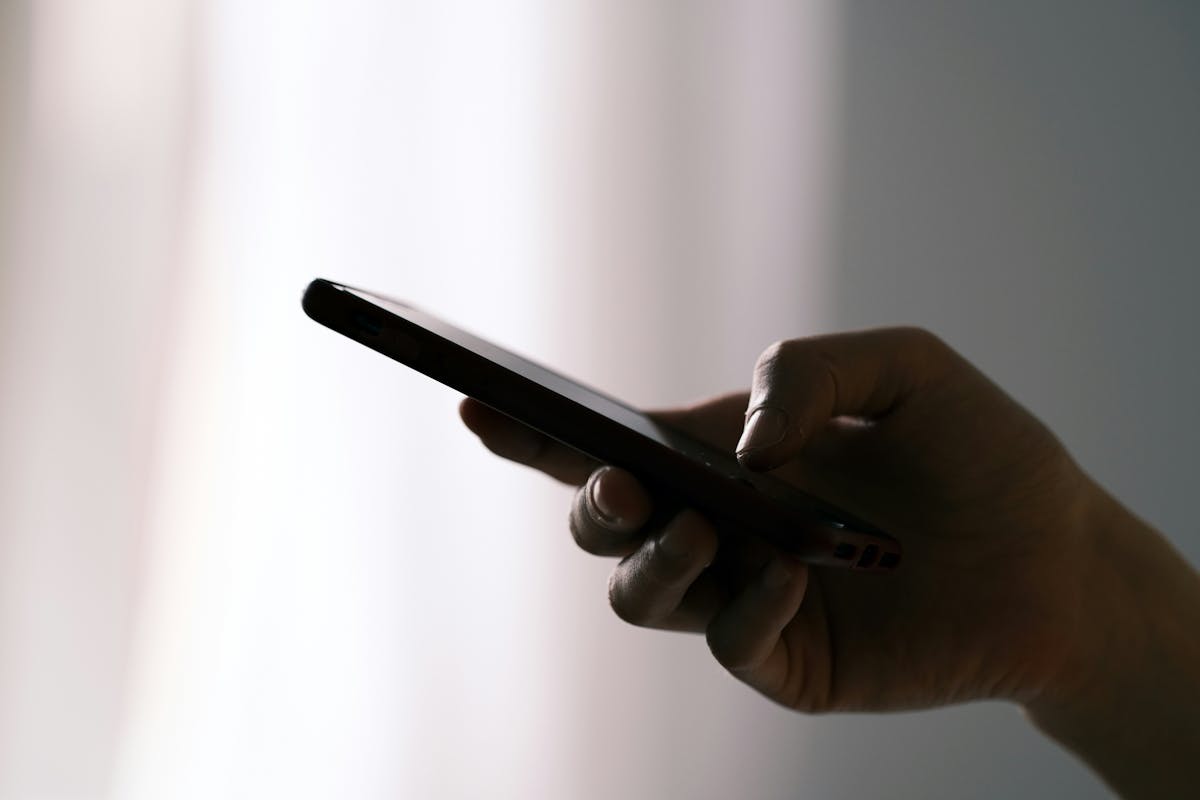How to Improve Hotel Communications Across All Teams


A guest’s stay can fall apart over one missed message. The front desk promises an early check-in, but housekeeping never gets the update, and maintenance is still fixing the faucet. These small gaps slow service, frustrate staff, and lead to bad reviews. Many properties still rely on radios, paper logs, or cluttered inboxes, even though text messages reach nearly every employee within minutes. Improving hotel communications starts with simplicity, using clear and timely updates that keep every department connected.
1. Identify Your Hotel's Communication Weak Spots
When messages get lost between teams, every part of your operation feels it. Guests wait longer for clean rooms, staff grow frustrated, and turnover creeps up. Before you fix the problem, you need to see where it starts.For comprehensive strategies on preventing these issues, explore our guide on preventing hospitality communication breakdowns.
Most breakdowns follow familiar patterns that hospitality teams face daily:
- Teams working separately instead of together means guest requests bounce around between housekeeping, front desk, and maintenance without clear ownership,
- No one knows who's handling what, so repair tickets sit unfinished and tasks get duplicated
- Paper logs, radios, and handwritten notes leave no record and disappear when shifts change
- Poor handovers let critical details about VIPs or maintenance issues slip through the cracks
- Language barriers in multilingual teams spark costly misunderstandings
- Unclear instructions leave staff guessing what "urgent" really means, especially new or temporary hires
The fallout shows up quickly. Longer response times damage morale, contributing to hospitality's notoriously high turnover rates. By identifying these weak spots, you create a clear roadmap for improvement that addresses the root causes rather than just symptoms.
2. Simplify Daily Updates That Reach Every Department
Daily updates only work when every employee sees them the moment you hit send. Paper logs sit on clipboards, radios miss people on break, and email barely gets opened. The solution is finding one reliable channel that works without Wi-Fi or app downloads. Text messaging fits this need perfectly since it reaches any phone instantly.
Keep each message short and direct. Two-way communication lets your team reply or ask questions, giving you instant confirmation instead of guesswork. Picture a busy front desk: the manager sends housekeeping a room status update, and within seconds gets confirmation back. Guests never notice delays, and your staff skips the extra radio chatter.
Modern communication platforms like Yourco make this seamless:
- Send one message from a web dashboard, and every reply gets time-stamped and stored automatically
- Segment your lists by department, shift, or property so the right people get the right message
- Reach only the night shift or just maintenance without creating noise for everyone else
- Track which messages get delivered and which require follow-up
This centralized approach eliminates the confusion that comes from juggling multiple communication channels, ensuring that nothing goes unnoticed.
3. Break Language Barriers Across a Diverse Workforce
Language barriers create real problems that hurt guest satisfaction and slow operations. When housekeeping gets instructions they don't fully understand, rooms stay dirty longer and guests notice. Most hotel teams speak multiple languages, but taped translations on bulletin boards can't handle real-time needs.
Start by making every task instruction clear and simple. Say "Change linens" instead of "Service bedding." Add photos or icons so new hires understand quickly, no matter their reading level. Train supervisors to slow down, confirm understanding, and communicate respectfully across cultures.
Beyond visual aids and simplified language, consider tools that translate messages automatically. AI-powered translation can deliver instructions in each employee's preferred language. Platforms support 135+ languages and dialects. This means housekeeping, kitchen, and maintenance crews get clear directions without downloading apps or consulting phrase books. Staff can respond in their own language while managers see English translations, keeping work flowing smoothly across language groups.
4. Connect Front Desk, Housekeeping, and Maintenance in Real Time
Fast, clear updates between these three teams cut wait times for guests and keep your lobby calm. When a leaky faucet sits unreported or the front desk guesses at room status, service slows and stress climbs.
Give every role a direct way to report issues the moment they happen. A housekeeper spots torn drapes in Room 312, snaps a photo, and reports it immediately. Maintenance accepts the job, and the front desk knows not to release the room until it's fixed. Set clear response times, such as five minutes to acknowledge a request and thirty minutes for routine fixes, so everyone knows what "urgent" means.
Automatic reminders work better than relying on memory. Schedule routine tasks like weekly HVAC checks to trigger automatically, preventing items from slipping through the cracks during busy periods. Digital tracking lets you spot bottlenecks quickly and prove repairs were completed when questions arise later.
5. Standardize Your Shift Handovers
When shifts change, critical information about guest requests and maintenance issues often gets lost. Guests notice when their morning room service order disappears or when yesterday's heating complaint goes unresolved. A structured handover routine eliminates these gaps.
Outgoing staff should document open guest requests, pending maintenance tickets, and VIP notes, then meet briefly with the incoming team for a quick review. Keep the handover under five minutes by focusing on information that directly affects guest service:
- Open guest requests and promised follow-ups
- Rooms out of service or waiting inspection
- Maintenance issues still in progress
- VIP arrivals, special requests, or allergies
- Safety or security incidents to monitor
Digital handover systems let outgoing staff send updates that automatically reach incoming staff before they clock in. Everything stays timestamped and searchable, creating accountability while freeing managers to focus on guests instead of tracking down missing information.
6. Keep Staff Engaged and Informed Beyond Their Shifts
Engaged employees create memorable guest experiences. When your housekeeping team feels connected to hotel goals and updates, they approach each room with more care and attention. The challenge is reaching everyone when rotating schedules and split teams make it nearly impossible for everyone to catch bulletin-board announcements or email updates.
Direct mobile communication solves this immediately. Send tomorrow's banquet setup reminder, share a weather alert that affects outdoor events, or broadcast a team celebration. Since messages reach any phone, staff don't need special apps or Wi-Fi to stay connected.
Effective communication flows both ways:
- Short pulse surveys help you learn whether the new linen vendor meets quality standards or if breakfast prep timing needs adjustment
- Recognition plays an equally important role by publicly thanking teams for exceeding targets
- Scheduled messages ensure updates arrive before staff clock in, even when you're handling other priorities
- Built-in survey tools collect anonymous feedback while HR distributes benefit reminders to every team member's phone
When staff feel informed and valued, they stay longer and perform better. Regular communication beyond the workplace reinforces that your team matters, even when they're off the clock.
7. Strengthen Safety and Emergency Communication
When the fire alarm sounds, every second matters. Evacuation notices hidden in binders or passed along a phone tree waste precious time. You need a communication method that reaches everyone instantly and works when other systems fail. For comprehensive emergency preparedness strategies, see our guide on emergency notification systems for business.
Build a simple routine around three steps. Send a one-way blast for urgent alerts such as evacuations, power failures, or severe weather. Follow with two-way check-ins so supervisors can confirm every team member is accounted for. Test the process at least quarterly, then store the results for audits and insurance reviews.
For emergency communication, text messaging offers distinct advantages. Messages reach everyone on the roster, from night security to banquet crews, within seconds without requiring logins. Replies create a searchable log with clear timestamps proving messages were received. Most importantly, texts ride the cellular network and continue working even when Wi-Fi or radios cut out.
8. Track Engagement Metrics to Improve Communication Over Time
Tracking your daily communications shows which messages land and which get ignored. Many hotels push updates without checking whether staff read them. Start by watching three simple numbers: message delivery rates, reply times, and survey participation. Sudden dips reveal training gaps or scheduling issues long before guest reviews mention the problem.
Analytics dashboards break down communication activity by property, shift, or role:
- Spot patterns like a maintenance crew that always replies late and adjust timing or content immediately
- Track which types of messages get the highest engagement from each department
- Identify optimal times to send updates based on historical response data
- Fine-tune every alert, reminder, or safety check so it arrives exactly when people can act on it
Over time, these insights transform guesswork into strategy. You'll know which managers need coaching on response times and which shifts consistently miss important updates, allowing you to address issues before they affect guest satisfaction.
9. Create Clear Communication Protocols and Training
Establishing precise protocols eliminates confusion about how information should move through your hotel. When instructions are vague or differ by manager, tasks slip and frustration rises.
Create a simple communication matrix that tells every employee which channel to use for different situations. Routine updates might go through one channel, while urgent safety issues need immediate phone calls. Make sure each team member knows who owns different types of messages and what response time you expect. This clarity prevents confusion when staff need to escalate problems or share critical information.
Pair that matrix with short, recurring training sessions:
- Walk teams through real scenarios and role-play shift handovers
- Review what went wrong the last time a guest request stalled
- Practice proper escalation procedures for different types of issues
- Reinforce protocols regularly since missing or inconsistent handovers cause most service delays
Simple communication tools make this training easier. When staff already know how to use the channel, you spend minutes teaching them your protocols instead of days. Templates help standardize messages for common situations, while audit logs give HR and security teams the documentation they need.
Keep Every Hotel Department Connected with Yourco
When every department gets the right message at the right time, guests notice smoother service and staff make fewer mistakes. Text messaging delivers that speed, reaching nearly every phone with superior reliability compared to email or app alerts.
Yourco makes this work for hotels. Messages travel over regular cellular networks, so you can reach housekeeping in the basement or maintenance on the roof even when Wi-Fi fails. Built-in translation sends each update in your team member's preferred language (our platform supports 135+ languages and dialects), so directions are clear for the night porter who speaks Spanish and the breakfast cook who reads Tagalog. Quick polls and automated reminders eliminate the back-and-forth you'd normally handle through paper notes, while every message gets time-stamped and archived for easy audits.
Better communication means faster room turns, fewer service gaps, and a team that feels heard. Try Yourco for free today or schedule a demo and see the difference the right workplace communication solution can make in your company.
Frequently Asked Questions
How can hotels use SMS to improve team coordination?
Text messaging reaches every employee, whether they're cleaning rooms in the basement or working the night shift. You can assign rooms, share maintenance updates, and get quick confirmations on task completion. A simple message like "Room 312 ready" keeps housekeeping, front desk, and maintenance on the same page without needing radios or apps.
What makes SMS communication more effective than mobile apps or email?
Messages don't need downloads, Wi-Fi, or passwords, so staff read them immediately. Most people only open about 20 percent of their emails, while texts get read right away. This means fewer missed handovers and faster guest service. You also skip the hassle of app updates and forgotten passwords, keeping the focus on taking care of guests.
Can Yourco handle multilingual hotel staff?
Yes. Yourco translates every message into more than 135 languages and dialects automatically. Housekeeping can read instructions in Spanish while the kitchen sees the same message in Vietnamese. This instant clarity prevents mistakes and helps new team members feel included from day one.
Is Yourco secure enough for sensitive HR communication?
Messages stay encrypted and every conversation gets logged for record-keeping. HR can discuss wages, benefits, or investigations through a private channel without sharing personal phone numbers. This keeps sensitive information secure while making communication easy.
How does Yourco integrate with existing HR or scheduling systems?
Yourco connects with popular HR and payroll systems, keeping contact lists updated automatically when staff join or leave. This connection lets you send shift reminders or policy updates from one dashboard without manual data entry.




